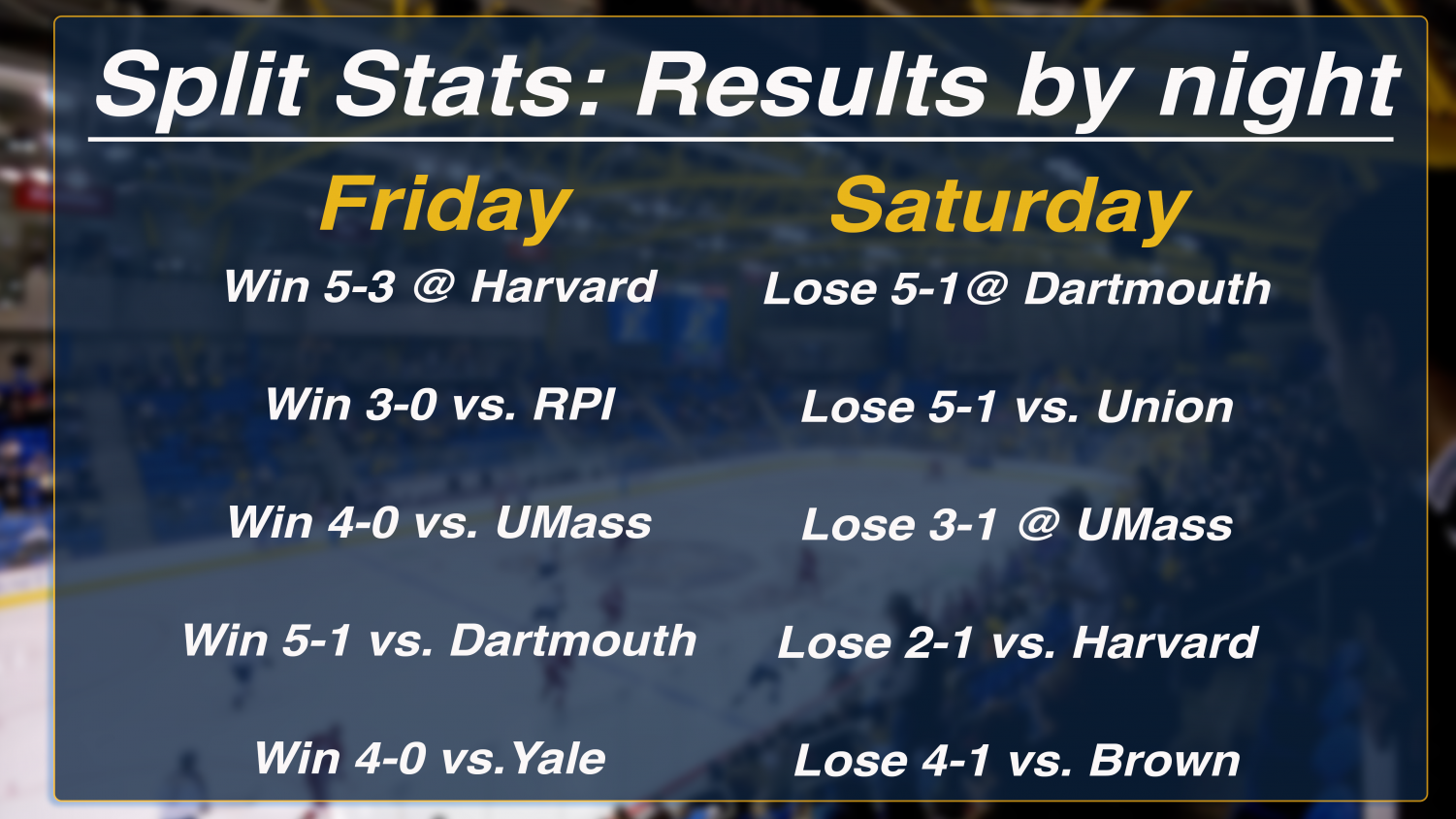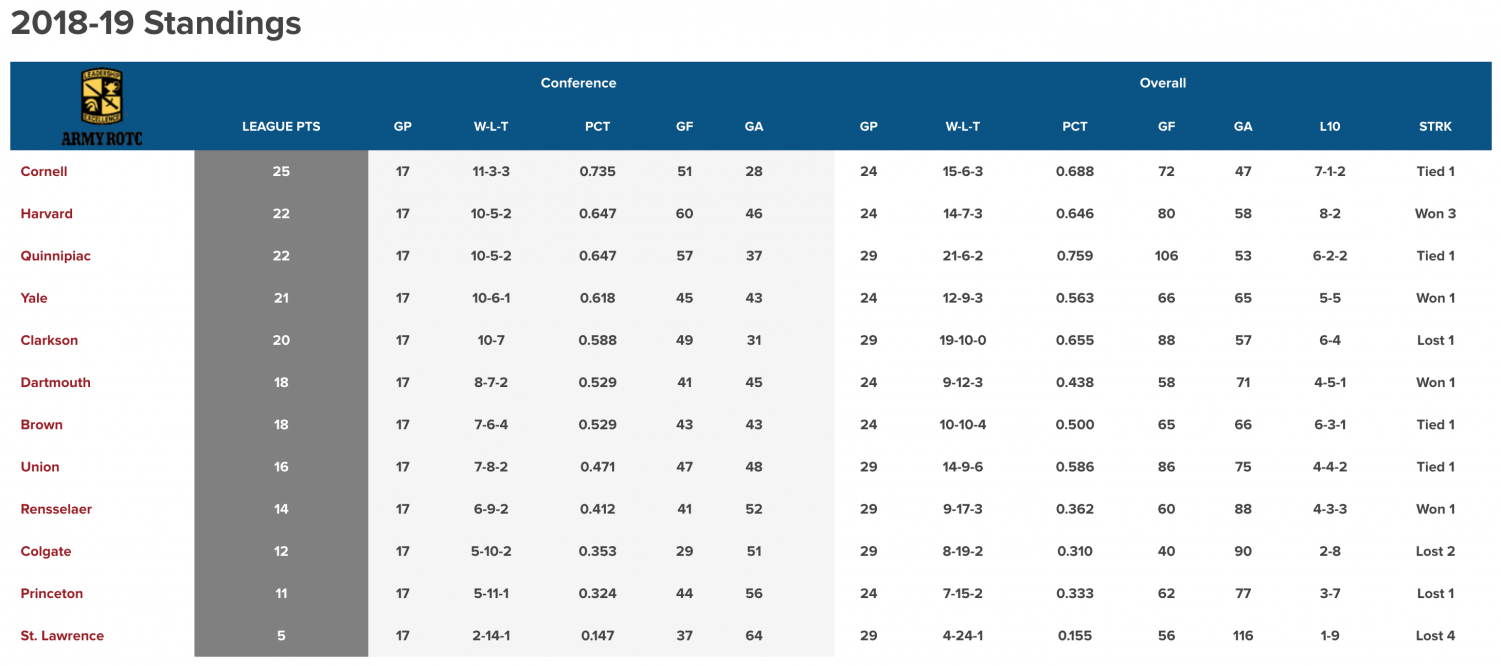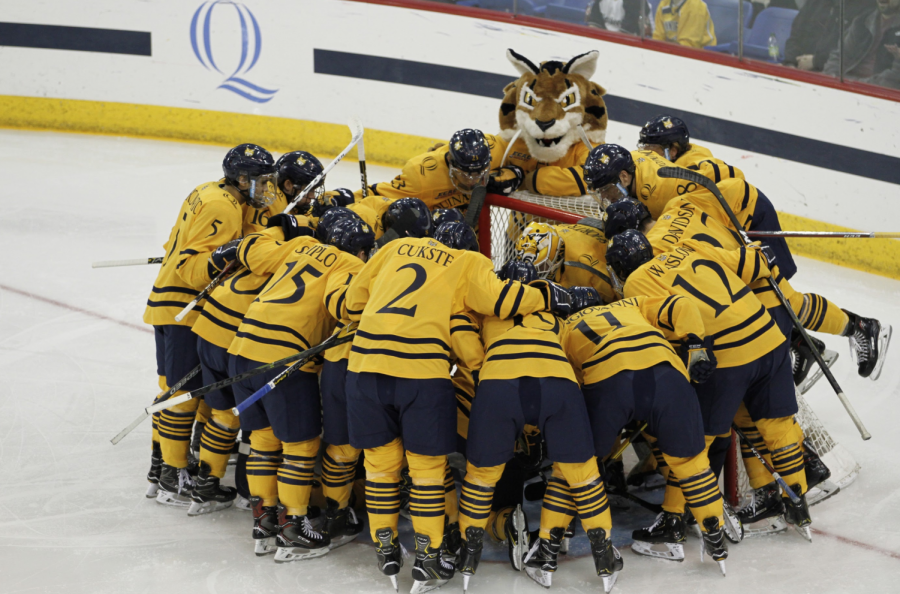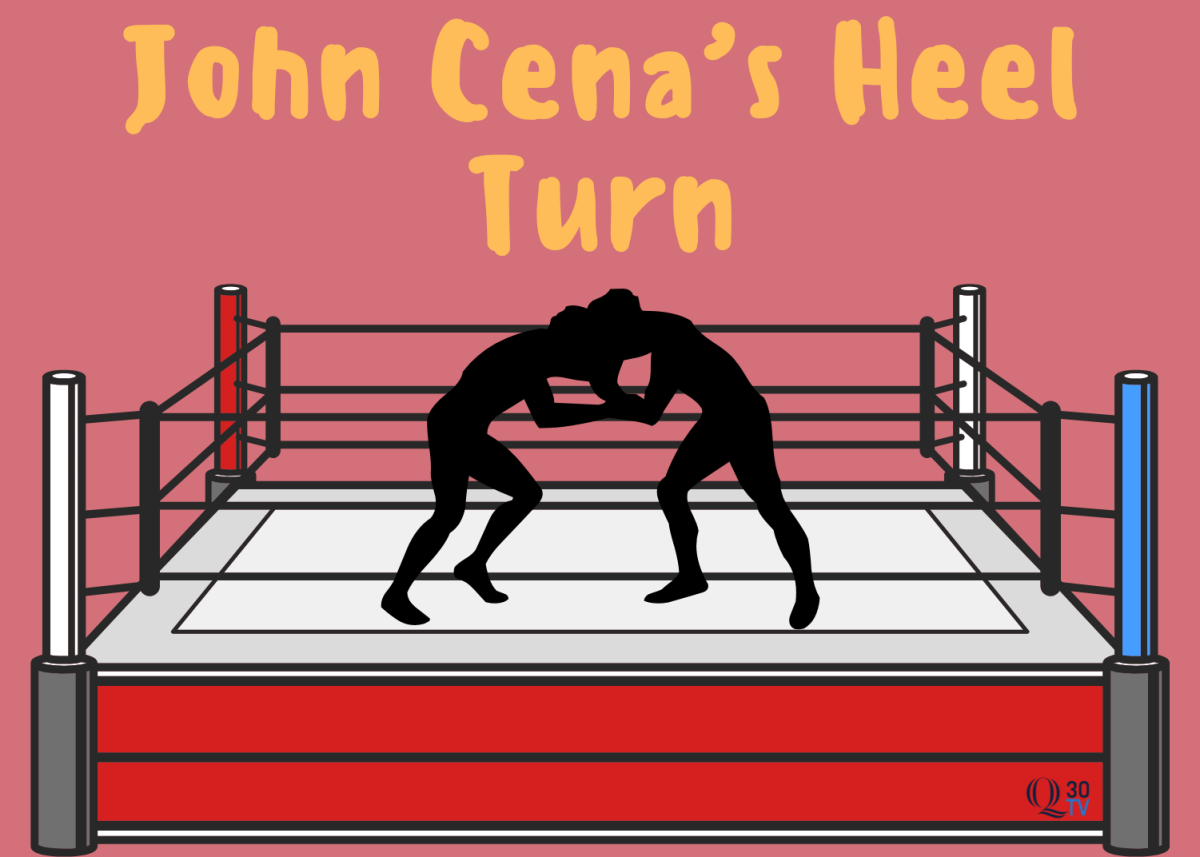COLUMN: Solving Saturday’s struggles
February 16, 2019
Back to back games on weekend nights are the nature of college hockey. Every team has to deal with the challenges that this type of schedule presents.
Yet this season the Quinnipiac men’s ice hockey team has struggled on the second night of back to backs. It is interesting to look at the No. 6 team in the country and compare its Friday night record to Saturday.
The Bobcats sport a 10-1-1 record on the first night of weekend series’. However looking at the Saturday games, Quinnipiac’s record isn’t nearly as strong. In fact, the Bobcats are just around .500, with a 5-5-1 record.
“You think its just going to come easy because you are the number three or four team in the country? You think its just going to come easy cause teams are going to roll over because that’s what you’re ranked? It’s the complete opposite,” senior captain Chase Priskie said. “You’re a national contender and everybody wants to take you down. I think as soon as we understand that, the sooner that we will have better success on back to back nights.”
Now look at those five losses. One against Dartmouth, getting skated out of the rink in a 5-1 loss on the road one night after a road win over Harvard. The very next weekend was another 5-1 loss, this time at home to Union in the first meeting this year, the day after blanking RPI the night before. The third loss I will consider an outlier. The Bobcats lost to the then No. 1 ranked UMass Minutemen a night after shutting them out at home. Due to the Minutemen being a top team in the nation, you can’t expect a weekend sweep. Splitting with them was very good. Put this one aside. Next was a loss to Harvard at home, the day after rolling over Dartmouth in a revenge game. The fifth, and arguably the worst Saturday night loss, was a 4-1 loss to Brown a night after steamrolling archrival Yale on home ice.

The answer to why Quinnipiac has been trending significantly less successful on the second night of a back to back compared to the first seems evident to the team. But it’s solving the problem that seems to be more a matter of time and learning experiences than anything else.
“I think with this team, it is just the immaturity level,” Priskie said. “A lot of guys don’t understand how hard it is to win games at this level. I think we get a little jacked up when we prepare for teams Friday night and we play to our identity and play our game. Then its tough to reset and understand that playing that Saturday night game that team wants to win just as much as you, if not more.”
The word immature has a significant negative connotation, and only Priskie knows if he meant to use that term given true its derived definition. But taken literally, his statement is fact.
Quinnipiac is immature. Nine out of 19 players in Quinnipiac’s lineup on any given night are freshman.
It’s important to note that these freshman have adapted to the college game well, making significant impacts on Quinnipiac’s success. But there is no disputing this team is young and inexperienced (sans the senior class that has played in an NCAA Frozen Four in 2016).
“We are a young hockey team, every period is different and every period is a game basically,” head coach Rand Pecknold said. “We tend to control that more on a Friday night. We need to do a better job of controlling that passion and emotion that makes us successful, and really buy into our identity on Saturday nights. When the details slip, it is more on the second of the back to back.”
In most conferences, teams play a weekend set against the same opponent. In other words, a two game series spanning across consecutive nights. However in ECAC Hockey, teams play Friday and Saturday against a different opponent each night.
There is something to be said for playing different teams on back to back nights. Preparing for two opponents in one week isn’t as easy as focusing on one team knowing you have two cracks at them in a weekend.
Quinnipiac’s weekly preparation consists of scouting its Friday night opponent all week. The coaches don’t implement Saturday game plans until the Friday game is over.
Do the math.
That’s four days to prepare for one game, and a handful of hours to prepare for game two. Some may say that has an impact on the teams records each night.
But this system isn’t anything new for Quinnipiac. Pecknold and his staff have operated this way for years. The split statistics for record didn’t show such disparity in the past (’17-18 – Friday nights: (5-8-1), Saturday: (6-6-2) ’16-17 – Friday nights: (9-4-2), Saturday (8-7-0)).
So a lack of ample prep time? You can rule that idea out.
We circle back to the “immaturity.” Priskie and Pecknold must be right. It’s the youth of the team that is affecting the teams performance on the second night of back to backs.
But weigh out the value of the youth. Nine new faces in the everyday lineup have turned Quinnipiac around in just one season. From a disappointing season a year ago (to Quinnipiac standards), back into national prominence and a top 10 ranking in the national polls.
Which is more important? You be the judge.
Quinnipiac is back in action Saturday night against RPI in Troy, New York.
For Bobcats’ fans, it will be interesting to see how the team bounces back in game two of the weekend series. With the conference standings so tight at the top, every single point is going matter down the stretch for playoff seeding.

“When our team starts to understand that every game is not guaranteed and you have to work to win every game, then we are going to be lethal,” Priskie said.
This team has been lethal at times this season. But should it find the consistency, ECAC Hockey fans should not be surprised to see Quinnipiac competing for a Whitelaw Cup, awarded to the conference champion, in late March.






